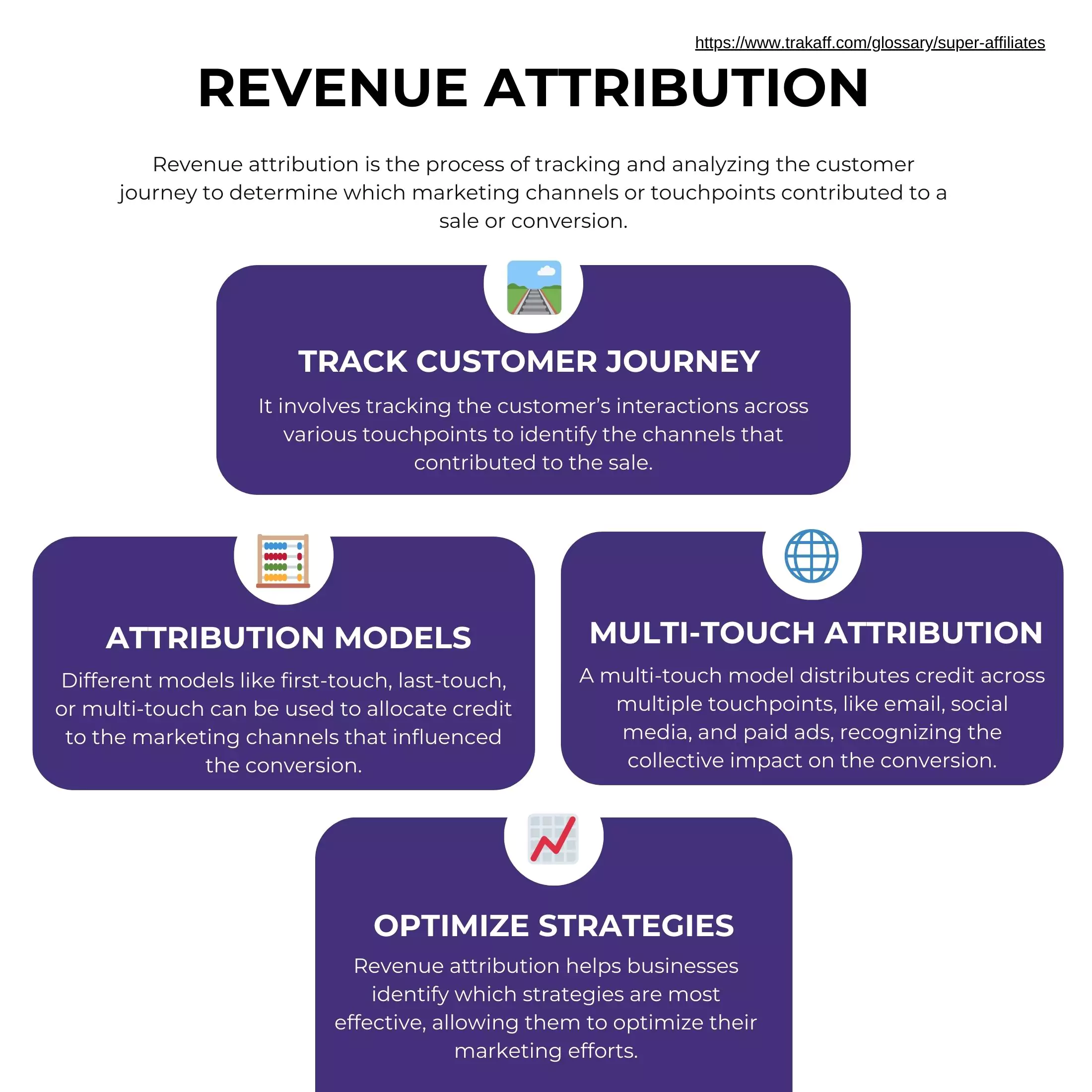Glossary > Revenue Attribution
Revenue Attribution
Revenue attribution is the process of identifying and assigning credit to the marketing channels or touchpoints that contribute to a sale or conversion. This helps businesses understand which strategies are most effective in driving revenue. For example, If a customer interacts with several marketing campaigns before making a purchase, revenue tracking determines how much credit each campaign receives.

What is Revenue Attribution?
It involves tracking and analyzing the customer journey to determine which marketing efforts contribute to revenue generation. This process can involve various models, such as first-touch, last-touch, or multi-touch, to allocate revenue appropriately. For example, a multi-touch tracking model might distribute credit across various touchpoints, such as email, social media, and paid search, that influenced the sale.
Why is Revenue Attribution Important?
It provides insights into the effectiveness of different marketing channels, allowing businesses to allocate resources more efficiently and optimize their marketing strategies. For instance, by understanding which channels drive the most revenue, a company can invest more in those areas to maximize returns.
Video Summary
Discover how to implement tracking models to enhance your marketing effectiveness and drive higher revenue.
Frequently Asked Question
What are common attribution models?
Common models include first-touch, last-touch, linear, and time-decay attribution.
How does revenue tracking impact marketing decisions?
It helps identify the most effective channels, enabling better resource allocation and strategy optimization.
Can revenue tracking be automated?
Yes, many marketing analytics platforms offer automated revenue tracking tools to streamline the process.
Optimize your marketing strategies with precise revenue tracking analysis!
Related Articles